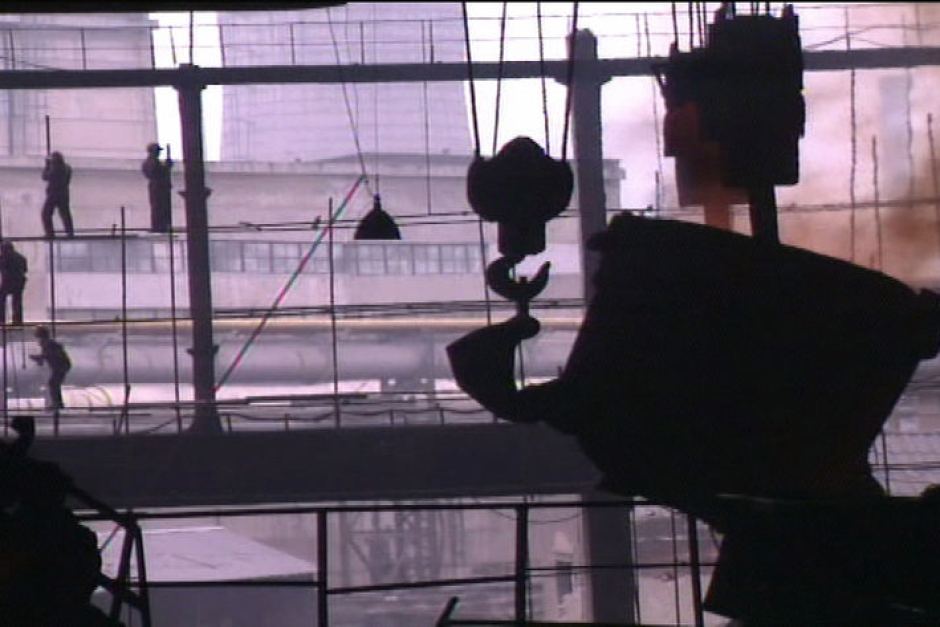Downsizing of China's steel industry causes job losses, social unrest

A downsize of China's massive steel industry cannot come fast enough for Australia, but it will take years before local steel producers see relief.
China's downsizing of its steel industry is one of the biggest industry restructures the world has ever seen.
For much of the globe, including Australia, it brings relief as cheap Chinese steel floods markets and forces the closure of steel plants worldwide.
But it is going to take some years before local steel producers see any relief and the downsize will mean Australia's iron ore exporters will take another hit.
One of the first areas of China to be downsized is the Tangshan district, with a third of its output to be cut by next year.
More steel is produced in Tangshan than the entire United States, and the villages across the district have already seen transformation with economic activity coming to a halt.
Chinese villages feel the pain from factory closures
The privately run Songting Steel factory was closed last November, resulting in about 7,000 jobs losses.
Lun Zheng, who worked at the plant for eight years, said the factory owed him seven months of salary.
"All the workers are hoping to get paid but we haven't got any money," Mr Zheng said.
Another man, Chen Zheng, worked at the mill for 24 years. He has now opened up a wine shop to make ends meet.
He despairs about the future of the village.
Like many other villages, it was tied to the incredible growth of China's steel industry, growing 12-fold between 1990 and 2014.
Mr Zheng said the Chinese Government had not planned for the slow-down.
"We went to the Government asking for our salaries and about our future. We demanded the Government to solve the problem," he said.
"They didn't solve it. They didn't have any answers."
Anger is also growing in Muchangkou village, where former workers have been demonstrating, some of them detained by authorities.
Bo Chow said the problem was that the villagers had no other way to earn an income.
"The steel factory took away all the land in our village. We don't have any income," he said.
"How can we common people live?"
Australian steel industry and resource sector suffering
Chinese authorities said 400,000 people were expected to lose their jobs, but other analysts put the figure closer to 2 million.
Regardless of the number, Chinese authorities do fear the mass unemployment and consequent social unrest.
In an effort to prevent this, they will stagger the slow-down over several years, cushioning the blow by continuing to operate the inefficient state-run steel mills, run at a loss.
But that is not good for global markets as in order to get rid of excess capacity, China has been dumping record amounts of cheap steel.
In 2015 China's steel exports grew by more than 20 per cent, with devastating impact.
Steel plants have closed in America and the UK and tens of thousands of jobs have been lost.
It has also pushed the Australian industry to the brink and in the long-term it is not good news for Australia's resource sector.